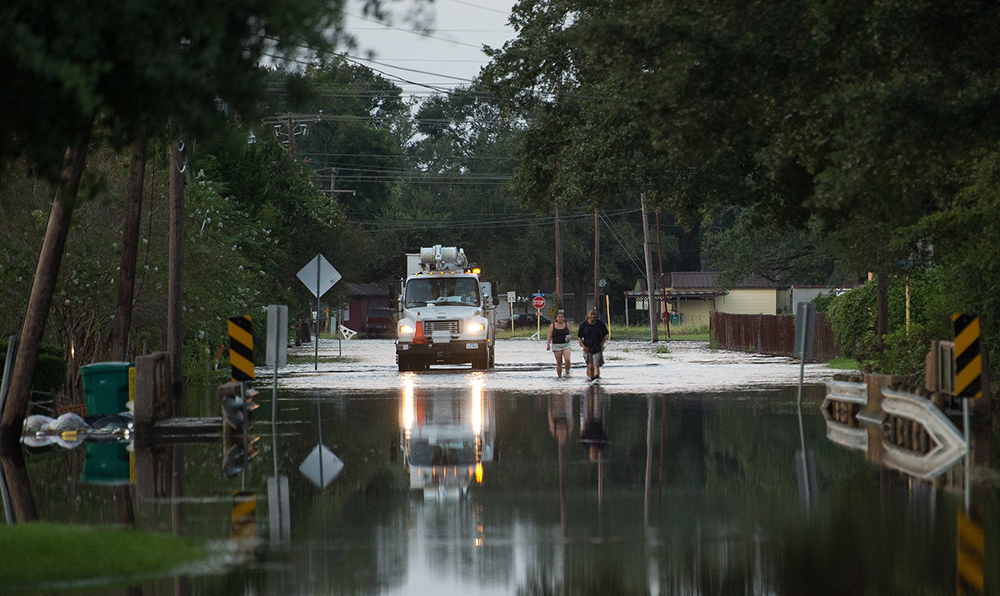The U.S. Chemical Safety Board (CSB) released a video safety message and a safety alert to help guide workers and their employers through extreme weather events.
The message, titled, “2020 Hurricane Season: Guidance for Chemical Plants During Extreme Weather Events” will be of use to labor-management health and safety committees, union safety representatives and USW Triangle of Prevention (TOP).
Atlantic hurricane activity this summer and fall is expected to be above normal, according to the report, with an anticipated 13-19 storms—six to 10 of them being hurricanes and three to six expected to be a category 3, 4 or 5, with winds of 111 mph or higher.
Three years ago, Hurricane Harvey stalled over southeast Texas, causing an unprecedented amount of rain. The Arkema Chemical Plant in Crosby, Texas, flooded, causing plant equipment to fail and stored chemicals inside trailers to decompose and burn, releasing fumes and smoke. Twenty-one people reported exposures to the fumes and sought medical help, while more than 200 residents living near the plant evacuated and could not return home for a week.

The CSB investigated the incident and found no industry guidance on planning for such severe weather events. The agency recommended that the Center for Chemical Process Safety (CCPS) produce a guidance document to aid the industry in its preparation for such events as hurricanes, floods, earthquakes and other natural weather.
The CCPS obliged with its new guidance document “Assessment of and Planning for Natural Hazards” that involves assessing natural hazards, addressing them and doing emergency planning. CSB’s safety alert said the CCPS document includes identifying natural hazards, their likelihood of happening and severity level; gathering date on them; evaluating facility design in relation to these natural hazards; assessing risks and planning for emergencies.
Startup of a chemical plant, petrochemical facility or oil refinery is always a hazardous activity, but if process safety requirements are not followed, it can turn into a catastrophic event. That is why CSB’s safety alert emphasizes reliance on established safety systems and checking process equipment thoroughly when starting up after an extreme weather event.
The CSB video is only about four minutes long and the safety alert is three pages. Joint labor-management health and safety committees, union safety representatives and TOP representatives would find more detailed information in the 41-page CCPS document.
